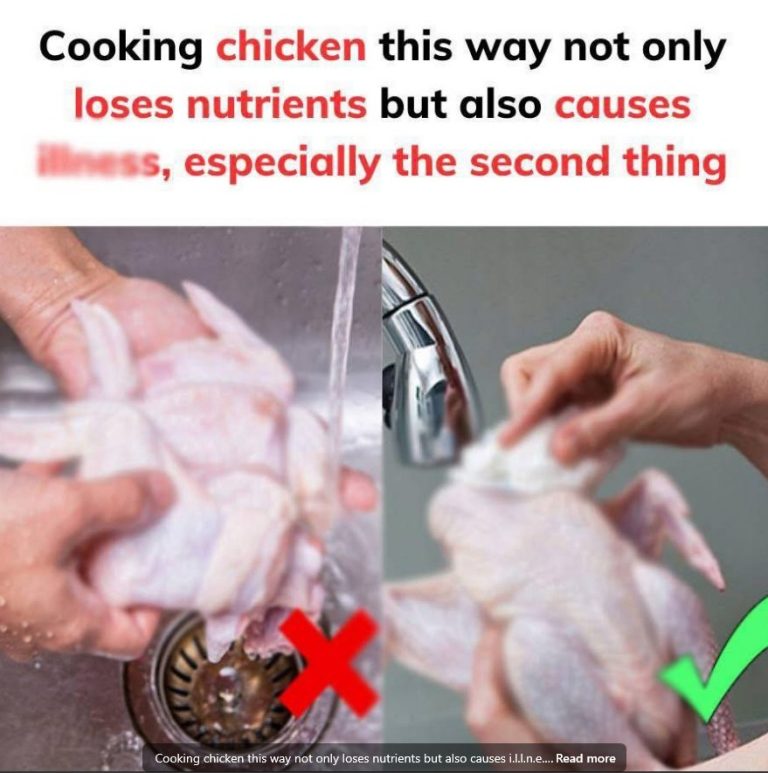Title: Avoid These Common Mistakes When Cooking Chicken

-
Select Quality Chicken: Start with fresh, properly stored chicken. Check for a pinkish color, mild odor, and firm texture.
-
Avoid Washing Raw Chicken: Contrary to popular belief, washing raw chicken can spread bacteria around your kitchen. Instead, pat it dry with a paper towel if needed.
-
Season Appropriately: Season chicken lightly with salt, pepper, and your preferred herbs or marinades. Avoid heavy breading or over-salting, which can lead to nutrient loss.
-
Choose a Safe Cooking Method:
-
Baking: Cooking chicken in the oven at 375°F (190°C) ensures even heating and preserves moisture.
-
Grilling: Grilling over medium heat gives a smoky flavor while keeping the meat tender. Just be cautious of charring, as it can form harmful compounds.
-
Sautéing: Cooking chicken in a hot skillet with minimal oil locks in nutrients and adds a nice sear.
-
Steaming: Steaming retains moisture and nutrients, making it a healthy alternative to boiling or frying.
-
Serving and Storage Tips:
-
Check the Temperature: Ensure that chicken reaches an internal temperature of 165°F (74°C) to kill harmful bacteria and ensure safe consumption.
-
Let It Rest: Allow cooked chicken to rest for a few minutes before slicing. This helps retain juices and improve flavor.
-
Store Properly: Refrigerate leftovers promptly in airtight containers. Consume within 3–4 days, or freeze for longer storage.
-
Reheat Gently: If reheating, do so gently to prevent drying out and maintain nutritional value.
Variants (Healthy Cooking Approaches):
-
Slow Cooking: Slow cooking at a low temperature preserves nutrients while making the chicken tender.
-
Poaching: Poaching in seasoned broth or water gently cooks the chicken without added fats, keeping it moist and flavorful.
-
Sous Vide: Cooking chicken sous vide at a controlled temperature retains maximum nutrients and ensures even cooking.
-
Roasting with Vegetables: Roast chicken with vegetables in the same pan. The vegetables soak up the juices, adding flavor and nutrition to the meal.
FAQ:
Q: What cooking methods should I avoid to prevent nutrient loss?
A: Avoid over-boiling or deep-frying chicken. These methods can leach out water-soluble vitamins and add unhealthy fats.
Q: Why does washing raw chicken increase illness risk?
A: Washing raw chicken can spread bacteria like Salmonella and Campylobacter to your sink, countertops, and utensils, increasing the risk of cross-contamination.
Q: How can I keep chicken moist without losing nutrients?
A: Use methods like baking, grilling, or steaming. Cooking at a moderate temperature and avoiding overcooking helps maintain both moisture and nutrients.
Q: Are there any health risks associated with cooking chicken incorrectly?
A: Yes, undercooking chicken can leave harmful bacteria alive, potentially causing foodborne illnesses. Overcooking or charring can also create unhealthy compounds.
Q: Can marinating chicken help retain nutrients?
A: Marinating can add flavor and some nutrients, especially if you use citrus, herbs, or yogurt-based marinades. Just be sure to cook it properly afterward.